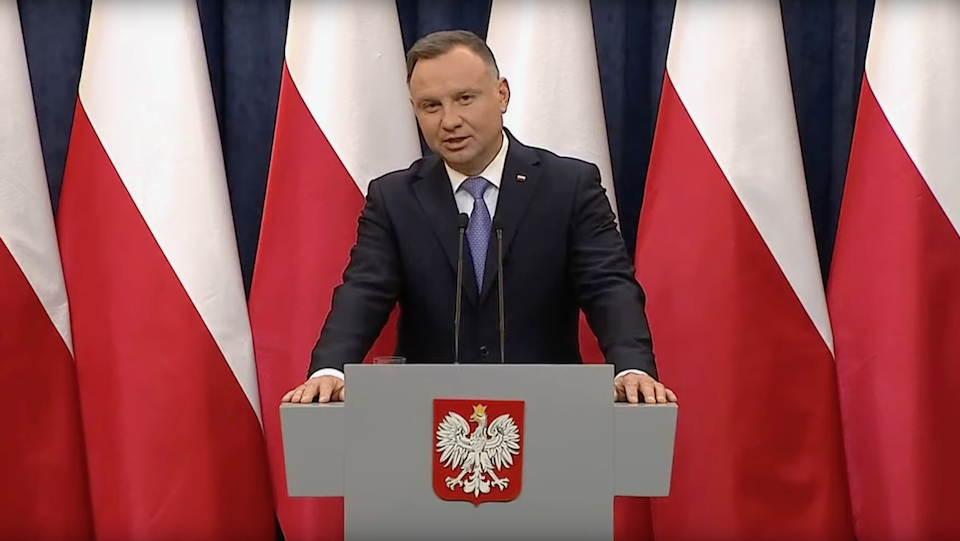Poland's president vetoes media law

Poland’s President Andrzej Duda has vetoed the controversial broadcasting law. He refused to sign it on Monday, as he is legally entitled to do. Thus, the controversial law will not be enacted for the time being.
Duda justified his decision in a televised speech, citing foreseeable negative effects on the Polish economy. The law would damage the country’s reputation as a business location.
He also addressed the current discussion about freedom of expression and freedom of press. “People I talk to are worried about the situation,” he said. “Most of my compatriots, most of my fellow citizens, don’t want any more disputes.”
The journalists’ organization Reporters Without Borders (RSF) welcomed the decision. RSF Executive Director Christian Mihr told Posteo, “President Andrzej Duda’s veto is a positive sign given the difficult situation for press freedom in Poland.” He added that the project should be shelved entirely. Opposition leader Donald Tusk said pressure from citizens and allies had made a difference.
Parliament passed the controversial bill in mid-December in an unexpectedly convened session. According to the draft, broadcasting licenses should only be granted to foreigners if they have their headquarters or residence in the European Economic Area. The licensee would also not have been allowed to depend on anyone whose headquarters or residence was outside the economic area.
As a result, tens of thousands of people (in German) had gathered on the streets of Polish cities to demonstrate against the decision. They feared a restriction of press freedom and demanded that media plurality be preserved.
Criticism also came from the EU and the U.S., which criticized the law as a threat to press freedom.
Against democratic opposition
On Monday, Duda said he was generally in agreement with the government’s intention to protect the Polish media landscape from foreign actors. However, he said the effort should not call into question existing contracts with companies and investors.
The Sejm, the lower house of parliament dominated by the national-conservative PiS party, had already given its approval to the law in August (in German). In September, however, the bill initially failed in the opposition-controlled Senate. Legal experts and the Legal Service had previously classified it as a violation of the Polish constitution, EU treaties and a Polish-American trade agreement.
In mid-December, the Sejm nevertheless overruled the Senate by a simple majority and submitted the law to the president for him to sign.
Attack on critical media
Critics accused the government of targeting the private TVN broadcasting group. Its news channel TVN24 is one of the country’s most successful and is considered critical of the government, in contrast to TVP’s state-affiliated programming.
TVN belongs to the U.S. media group Discovery and would thus have fallen under the planned regulation. When the law came into effect, the owners would have had to sell their controlling majority within six months.
Duda also justified his decision with disputes in Polish-U.S. relations. The administration in Washington welcomed his veto. White House National Security Adviser Jake Sullivan called the action a “positive signal.”
Outcome unclear
The law, dubbed “Lex TVN” by critics, was part of the “repolonization” of the media promoted by the ruling PiS party. Duda now called on the Sejm to find suitable solutions to limit the influence of foreign companies on the media in Poland. He said the legislation should not be applied to existing contracts with companies and investors.
The Sejm could indeed override the president’s veto with a three-fifths majority. However, Duda declared this possibility inconceivable given the current balance of power.
In the World Press Freedom Index, Poland has fallen numerous places in the five years since the PiS party came to power, from 18th to 64th out of 180. (hcz)